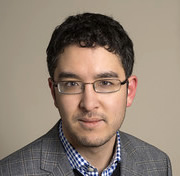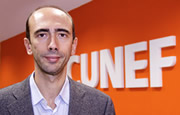In more than twenty years of existence, the Institutional and Organizational Economics Academy (IOEA) has become one of the most prominent events in research on institutional and organizational economics.
Using rigorous scientific methods, Institutional and Organizational Economics (IOE) focuses on the analysis of the economic impacts and on the evolutions of co-ordination frameworks: institutions, organizations and contracts. Main subjects of investigation cover issues that are essential in the design of efficient public policies and firm strategies. IOE put emphasis on applied analysis to confront the theory to facts to enrich the former accordingly. In addition, it is based on multi-disciplinarity to stimulate cross-fertilisation among political science, anthropology, sociology, management, law, and economics.
The IOEA organizes three types of activities:
- A one-week spring school which is held every year at the Institut d'Etudes Scientifiques de Cargèse in Corsica (France) and combines lectures given by internationally recognized scholars, and workshops and seminars coordinated by young scientists known for their expertise either on a research topic or on a methodology;
- Workshops focusing on a specific topic in the field
Over the years, IOEA has continually built up a dense and wide network of researchers and students interested in this dynamic field.
The strong mobilization of scholars, the organization of complementary workshops and joint publications, the development of on-line resources, the benefit of well-suited facilities, the support of renowned universities, the reiterated financial support from numerous noteworthy institutions and the positive signal that these supports gives to researchers have all contributed to a long-term success. Today more than 350 alumni currently hold academic positions throughout the world, and many scientific co-operations were initiated in this framework.
IOEA 2026
The 2026 edition of the IOEA will take place in spring at the Institut d'Études Scientifiques de Cargèse in Corsica, France.
Important Dates
- Application Deadline: March 15th - [Earlier application is recommended] – notification of acceptance from Mid-February
- Registration: March 27th
Faculties speak about it!
What Alumni & Faculty Say

"I attended ESNIE in May 2010 and had a great experience. I benefited from hearing lectures from Oliver Hart and Maristella Botticini among others and ..."

"I attended ESNIE twice—as a PHD student, in 2005, and as a junior lecturer, in 2009. Both stints have had an enduring impact on my research and on my ..."
